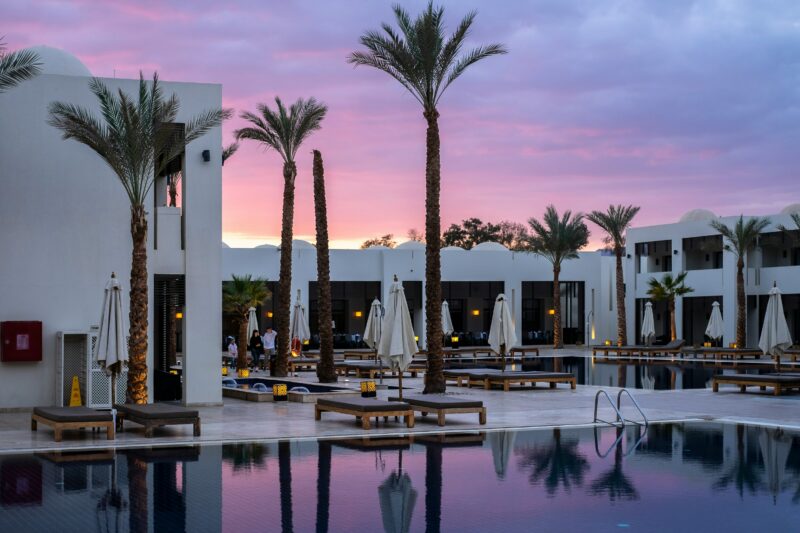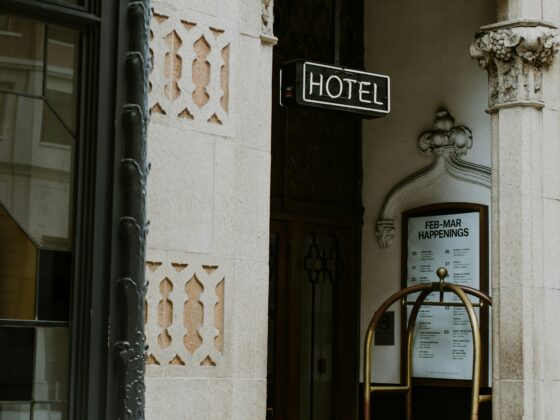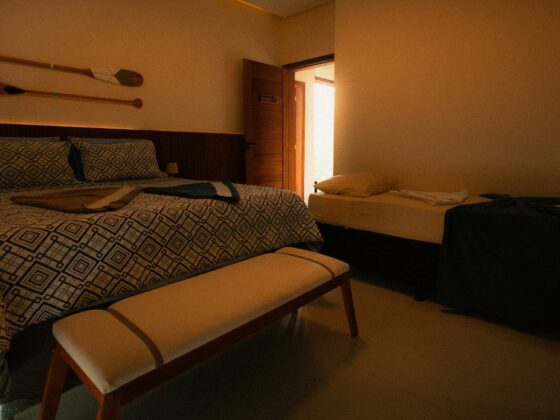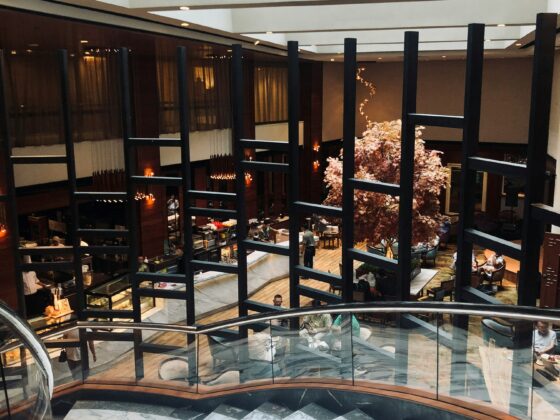Dallas has no shortage of steakhouses or luxurious restaurants. Just look to homegrown operations like the always-popular Nick & Sam’s, or the from-out-of-town bigshot Carbone. But a newly opened player is out to prove that more is sometimes more, especially when it comes to luxe environs and premium meats.
Nuri Steakhouse opened August 20 in Dallas’ Uptown neighborhood, sporting a $20 million price tag in design and buildout and a menu that’s merging steakhouse classics with Korean accents. It comes from Wan Kim, who became Smoothie King’s first international franchisee in 2003 when he opened a store in South Korea. He eventually grew his share to 130 stores before taking over as the company’s global CEO, and his journey led him from South Korea to New Orleans and then to Dallas.
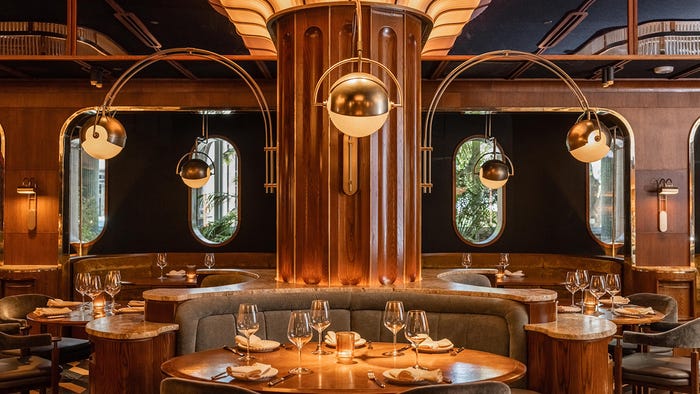
Nuri Grill opened August 20 in Dallas at an estimated cost of $20 million. Photo Credit: Kayla Enright
Nuri means “whole world” in Korean and is meant to represent the cultural exchange that occurs when people share a meal. Kim sees the restaurant as an opportunity to blend diverse flavors and cultures.
“We offer a unique dining experience by combining the rich tradition of a classic steakhouse with the bold, vibrant flavors of Asian cuisine,” he said.
The restaurant spans 9,500 square feet, with indoor seating for 150, including the bar and dining areas, and an additional 50 seats outdoors. There’s also a private dining room, and a members-only lounge is slated to open in a couple of months.
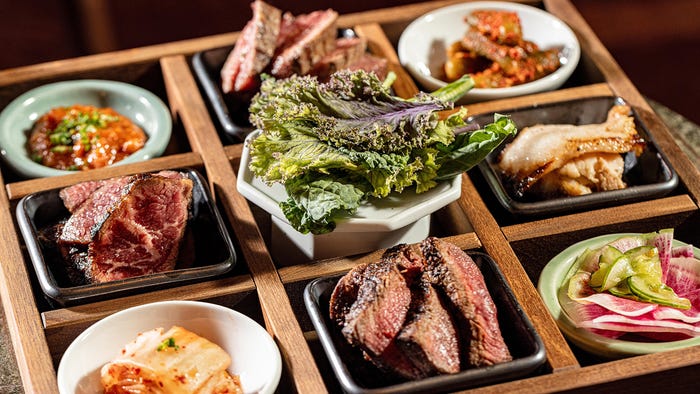
The Nuri tasting board includes a variety of meats and traditional Korean banchan. Photo Credit: Kayla Enright
Kim worked with design firm AvroKO to build out the space, which features a mixture of deco style with traditional Korean décor and a hint of cyberpunk culture via linear touches meant to evoke circuit boards. Custom stonework, hand-painted wallpaper and striking chandeliers add to the lavish surroundings.
The menu is a collaboration between culinary director Minji Kim and executive chef Mario Hernandez. Prior to coming to Dallas, Minji Kim ran a Michelin Guide listed restaurant in Seoul, South Korea, while Hernandez worked at Del Frisco’s Double Eagle Steakhouse and Gordon Ramsay North America.
“This menu represents a true collaboration between two distinct chefs from different backgrounds,” Hernandez said, noting that Kim brings the East Asian perspective while he contributes the Western influence. “Starting with a clean slate allowed us endless creativity; we merged our ideas to craft a menu we are immensely proud to present.”
Dinner begins with a selection of hot and cold appetizers, including wagyu beef dumplings, shrimp cocktail with gochujang and kimchi cocktail sauce, and a duo of steak tartares: one East and one West. There’s caviar service, a seafood tower, Korean-style lobster with chile sauce, and Korean gumbo loaded with kimchi, sausage, and potatoes.
Steaks lean traditional, with classic dry-aged cuts like filets, rib eyes and strips. There’s a selection of Texas Akaushi Heartbrand Reserve steaks, including a 36-ounce tomahawk, and wagyu sourced from Japan, Australia, and the United States. Non-steaks include Ora King salmon, jumbo prawns with udon, and seared scallops.
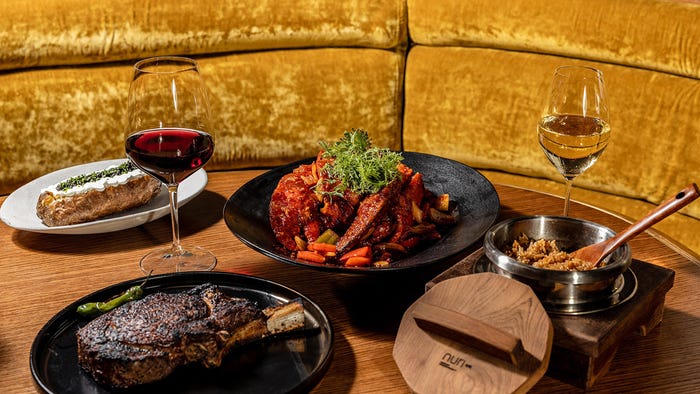
The menu features steakhouse classics with Korean influences. Photo Credit: Kayla Enright
The wine program is curated by master sommelier Barbara Werley. She’s one of only 14 certified master sommeliers in Texas and one of just 34 female master sommeliers worldwide. Nuri’s wine cellar holds 750 labels and 6,000 total bottles, including a handful of rare wines like an 1863 Madeira and a 1900 Chateau Lafite Rothschild.
Nuri Steakhouse is Wan Kim’s second restaurant, besides Smoothie King, after JOA Grill, a Korean barbecue spot in Dallas’ Asian Trade District. He has big plans for both.
“We’re excited to expand both of our concepts,” Kim said. “For Nuri, we’re exploring options between entering major cities like N.Y.C. and Miami or expanding into other vibrant markets such as Denver or Nashville. As for JOA Grill, our plan is to first focus on growing within the D.F.W. metroplex, expanding that market, then moving into other regions. We believe there’s potential to open four to six locations per market across the country.”
The United States is full of vibrant Korean communities in markets like Los Angeles, New York City, Washington, D.C., Seattle, Atlanta, and Dallas. Naturally, the food follows, and Korean restaurants are proving to be some of the hottest tables across these cities, from Michelin-starred darlings to casual barbecue joints. Kim sees a lot of potential for Korean food in Dallas and in general.
“Dallas has such a diverse and evolving food scene, and we’ve already seen a lot of interest through the success of JOA Grill,” Kim said. “Our guests are curious and enthusiastic about elevated Korean cuisine. There’s definitely room for more high-end Korean restaurants here, and I think as more people are introduced to the depth and sophistication of Korean flavors, we’ll continue to see growth in this area. It’s an exciting time for the city, and I’m confident Dallas is ready to embrace it.”

